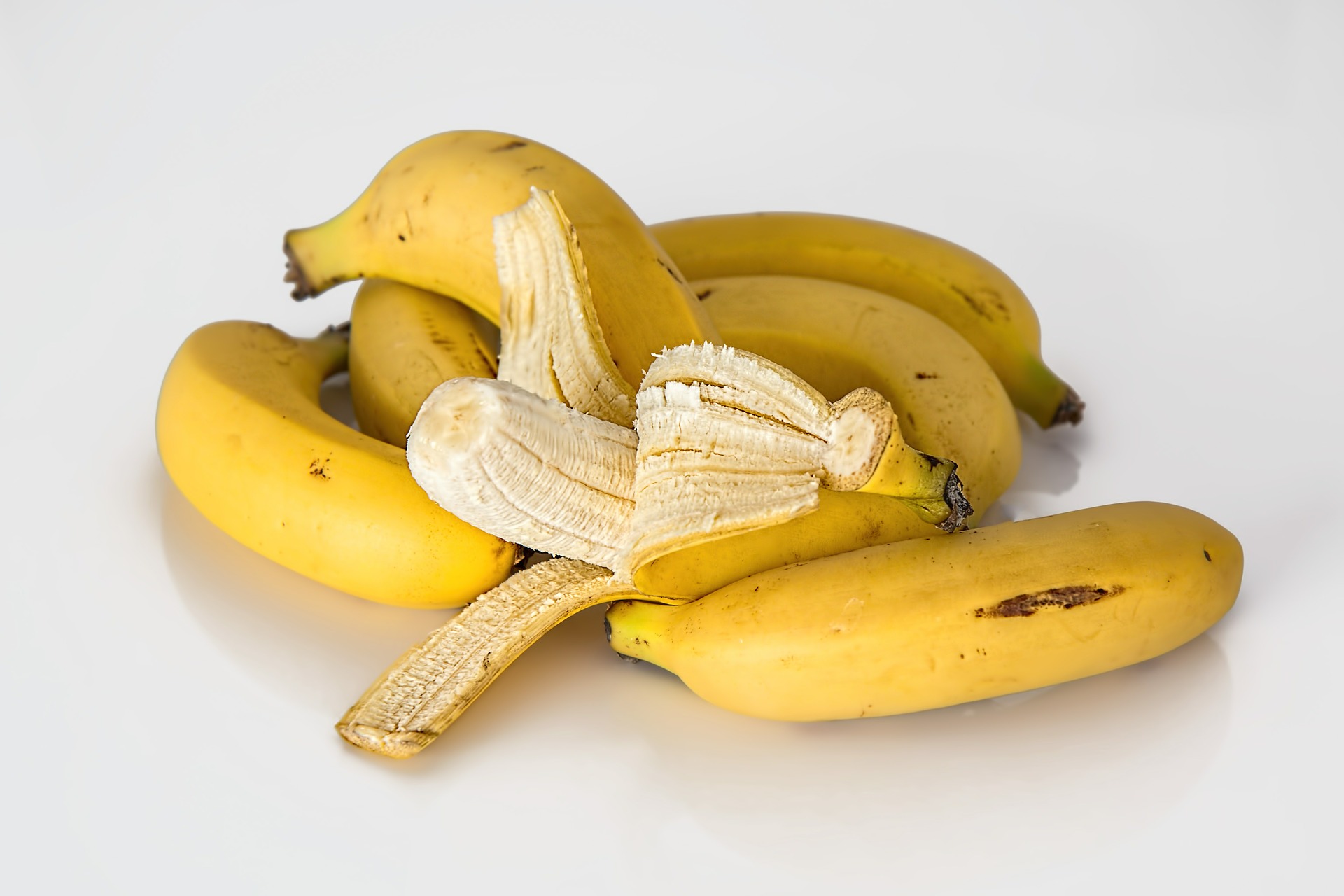- Banana: a tropical plant of the genus Musa, certain species of which are cultivated for their nutritious fruit.
- Plantain: a tropical plant, Musa paradisiaca, of the banana family, resembling the banana.
Don’t you just love definitions like those?
Exhibit A: Banana. Exhibit B: Fruit that looks like a banana.
We may have to dive a bit further to determine the difference between bananas and plantains.
Both bananas and plantains:
- Are tropical fruits.
- Have the same crescent shape.
- Are nutritious, offering dietary fiber, vitamin A, and vitamin C.
Bananas:
- Are smaller than plantains.
- Are yellow when ripe, green when unripe.
- Are often consumed raw.
- Are usually consumed when ripe.
- Are a great source of potassium.
Plantains:
- Are larger and thicker skinned than bananas.
- Are green, then turn yellowish black as they ripen.
- Cannot be consumed raw.
- Grow sweeter as they ripen.
- Are lower in sugar and higher in starch than bananas.
- Are treated like vegetables.
In short, plantains are starchy and more potato-like than bananas. Although, green bananas can be cooked in a similar manner to plantains.
I feel like I don’t hear a lot about plantains. But, they’re probably a neat fruit/vegetable to cook with. It appears that plantain chips may be on the rise as a healthier alternative to potato chips.
